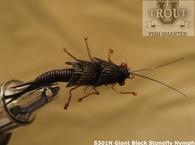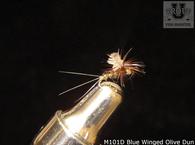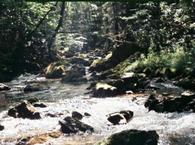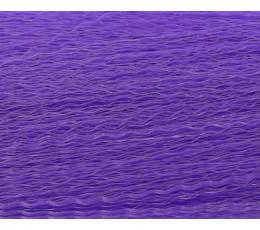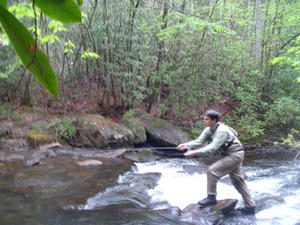
Angles often ask "At what water temperature should they stop fishing for trout?" Provided reasonable care is taken, there is nothing wrong with catching trout with a fly when the water temperatures get up to or into the low seventies, however, it may not be easy. When water temperatures reach the low seventies, the trout almost cease feeding. The problem is not with the water temperature as much as it is with the low oxygen levels associated with the warm water. The temperature of the water and the oxygen content are inversely proportional and it doesn't change on a straight line. It changes on a sharp curve and as the water temperature rises, the oxygen level decreases rapidly.
Studies conducted on the Firehole River in Yellowstone National Park have shown that when the water is in the low seventies, the trout will actually lose weight as they simply do not feed as much. The solution is to find cooler water perhaps at a higher elevation or where water exits from a dam. But if you insist on fishing when the water temperature is in the high sixties or low seventies, please find the highly oxygenated areas of the water like water falls, plunges, etc.
Regarding the question of whether or not it hurts the trout to catch them in water as high as lets say seventy degrees, the answer is no - not if reasonable care is taken. By that we mean if the fish is released quickly after being caught, they should be fine. The point at which high temperatures can hurt the fish varies from species to species, area to area and exactly how much stress is put on the fish during the catch and release. As a general rule, we would say that when the water is close to seventy degrees, it is best to stop fishing.
Some anglers believe that trout caught in the warmer water will simply swim off and then die which is possible of course, but not probable. When a trout is exhausted but treated kindly and released quickly, it will usually swim off and be fine. However, what does harm the trout, especially at high water and air temperatures after being caught, is keeping them out of the water a long time. A more serious impact on the trout’s survival is mistreating them. We have all seen photos where people have laid trout on the ground usually by their rod or in a net, and photographed them. This is not a good practice because all fish have a slimy coating on them that helps protect them. It helps prevent fungus for one thing. It is easily removed from their outer body by handling them with dry hands and/or with a dry landing net. Always wet your hands and your net before landing fish. Laying them on the ground or on any dry object tends to remove some of the beneficial slime, as well.
Also do not fight the trout for a long time on ultra light tippets under warm water conditions as this adds to the stress. Likewise a large brown caught and then fought for a long time, can be over stressed. But if you go early, check the water temperature, look for cooler oxygenated water you should do well this summer. Just use common sense and take care of the fish.


